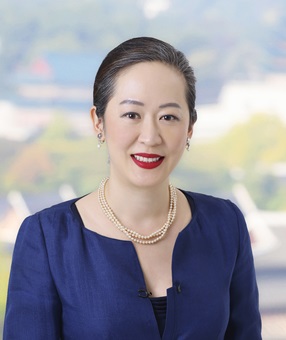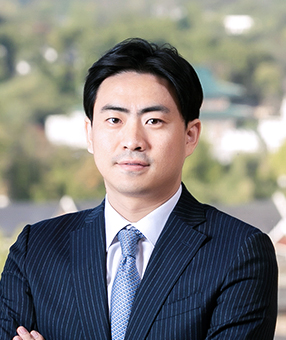Improvements to the rights of minority shareholders under the Commercial Act and the Financial Investment Services and Capital Markets Act are currently underway, along with improvements to related disclosure regulations. These enhancements aim to strengthen the rights of both minority shareholders and institutional investors. In this process, the exercise of voting rights and shareholders’ rights by institutional investors is increasing in frequency, leading to more cases where dispute campaigns by activist shareholders or minority shareholders are accelerated. In particular, it is necessary to thoroughly review and prepare for the 2025 Annual Ordinary General Meeting of Shareholders.
The voting rights and shareholders’ rights of institutional investors, including pension funds and asset managers, are exercised according to the stewardship code that governs each institution’s activities related to its fiduciary duties. Therefore, if there is a campaign opposing the convening of a general meeting of shareholders, or if a dispute arises, a specific review of each institution’s stewardship code should be undertaken.
Since its establishment in 2016, the general standards for the stewardship code in Korea have been maintained without any major amendments. On February 5, 2025, the Financial Services Commission (the “FSC”) held the “Stewardship Code Development Direction Seminar,” presided over by So-Young Kim, Vice Chair of the FSC. During the seminar, participants reviewed the operational performance of the “Principles on Stewardship Responsibilities of Institutional Investors,”[1] Korea’s stewardship code, and discussed ways to enhance these principles. Under these circumstances, it is crucial to pay careful attention to the relevant developments.
In his opening speech, Vice Chair Kim emphasized the following initiatives to improve the stewardship code.
-
Make improvements to the stewardship code, including expanding its scope: Vice Chair Kim stated that it is necessary to reconsider whether the current stewardship code, which has maintained its form since its establishment in 2016, is suitable for the changed capital market reality. He noted that, while the stewardship code serves as action guidelines for institutional investors and thus significantly influences the overall capital market and companies, essential improvements are needed to ensure that it timely reflects market changes and demands of general investors in order to improve confidence in the capital market. Vice Chair Kim specifically mentioned how major countries such as the UK, Japan, Germany, and Singapore are also strengthening the roles of institutional investors by amending their stewardship codes. He highlighted that Korea should also begin discussing the need to expand the scope of fiduciary duties and target assets, and reflect sustainability elements, among other considerations.
-
Monitor implementation of the stewardship code and expand disclosure: Vice Chair Kim noted that by regularly monitoring and communicating their compliance with the stewardship code, institutional investors can build trust in their commitment to generating mid to long-term profits for general investors. He further suggested that, to ensure the effective monitoring of implementation, the FSC may consider gradually expanding the scope of monitoring by developing relevant best practices.
-
Encourage active participation from institutional investors: Vice Chair Kim also urged institutional investors to actively engage in activities so that the operation of the stewardship code could lead to improvements in the structure of the Korean capital market. As the amendment to the Stewardship Code Guidelines in March of last year provided a basis for institutional investors to examine the mid to long-term strategies of portfolio companies, Vice Chair Kim expected that a corporate value-up culture, where institutional investors interact more seamlessly with and carefully evaluate and invest in portfolio companies, would spread.
The details of the specific presentation topics followed by the foregoing opening speech are as summarized below. During the subsequent discussions, the participants agreed on the need to expand the scope and coverage of the stewardship code and improve its implementation and presented various operational improvement measures necessary for the development of the code. In particular, regarding the participating agencies, it is advisable to pay attention to the opinion that public pension funds besides the four major pension funds (National Pension Service, Government Employees Pension Service, Teachers’ Pension, and Korea Post), should participate in the stewardship code.
The FSC and the Korea Institute of Corporate Governance and Sustainability (“KCGS”) announced that they will collect a wide range of opinions on the various issues presented at the seminar. They plan to do this by forming a working-level consultative body and conducting surveys. Based on the collected opinions, they will review the issues from various perspectives and continue providing support to ensure that the measures to develop the stewardship code are established this year.
If the stewardship code is amended to achieve the aforementioned initiatives, namely, (i) to make improvements, including expanding the scope of the stewardship code, (ii) to monitor implementation of the stewardship code and expand disclosure, and (iii) to encourage active participation from institutional investors, then certain outcomes may occur. Specifically, if listed companies fail to faithfully conduct investor relations (“IR”) and general meetings of shareholders in a way that aligns with the standards for each institutional investor’s exercise of voting and shareholders’ rights, then instances may increase where institutional investors (including pension funds and asset managers) actively exercise their dissenting votes and shareholders’ rights. It is important to note this issue as it may also lead to an expansion in the exercise of shareholders’ rights by activist or minority shareholders.
|
Presentation 1. Overseas Cases of Stewardship Code and Amendment Direction - Professor Jun Hee Kwak, Economics, Sogang University |
|
|
Presentation 2. Status of Stewardship Code and Direction to Improve its Implementation - Research Fellow Hyunyoung Hwang, Korea Capital Market Institute |
|
[1] These principles were established on December 16, 2016, and as of the end of 2024, 239 institutional investors, including the four major pension funds and 133 asset managers, have joined.








